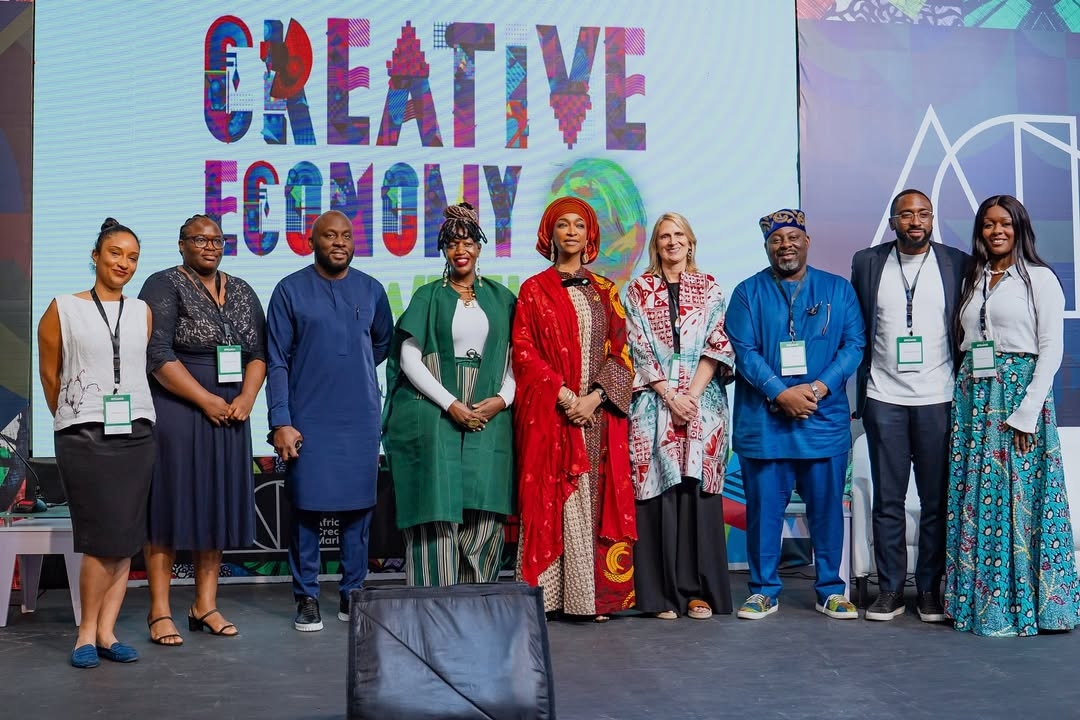
2M Creative Economy Jobs by 2030
Nigeria’s new Creative Economy Data Mapping Report reveals film, music, fashion, and tourism as key growth engines set to power 2M jobs by 2030.
Nigeria’s Creative Economy Report Unveils Path to 2M Jobs by 2030
At the Creative Industries Economic Coordination and Investment Summit in Lagos, the Federal Ministry of Art, Culture, Tourism and the Creative Economy (FMATCE) unveiled the Creative Economy Data Mapping Report; a first-of-its-kind blueprint for building a thriving creative sector.
This landmark study shines a spotlight on opportunities across film, music, fashion, design, digital content, cultural infrastructure, and tourism.
Most importantly, it lays out a clear roadmap to deliver two million creative economy jobs by 2030 under the Renewed Hope Agenda.

Why Nigeria’s Creative Economy Matters
The creative economy already contributes about 3% to Nigeria’s GDP (BusinessDay, 2024), but experts say it could double by 2025.
That’s not small change. In fact, in some states, creative industries already bring in more revenue than agriculture.
Imagine this:
Film: Nollywood produces over 2,500 films a year, making it the second-largest film industry in the world.
Music: Afrobeats is a global phenomenon, selling out stadiums from Lagos to London.
Fashion & Design: Nigerian designers are putting our fabrics and styles on international runways.
Tourism & Culture: From Argungu Festival to Osun-Osogbo, cultural tourism has untapped potential to drive jobs and foreign exchange.

With the right policies, Nigeria’s creativity is not just about entertainment, it’s about economic power, national branding, and global influence.
What the Report Reveals
The Creative Economy Data Mapping Report identifies where Nigeria must focus to unlock growth:
Financing & Investment: Access to capital for creatives remains a bottleneck. The report pushes for private-sector funding, development finance, and new instruments like the Creative Economy Development Fund (CEDF).
Infrastructure: From film studios to cultural districts, Nigeria needs world-class spaces for creativity to thrive. The proposed Creative and Tourism Infrastructure Corporation (CTICo) will drive this.
Priority Sectors: Film, music, fashion, design, and tourism are highlighted as the fastest-growing industries with global demand and export potential.
Job Creation: By mapping talent supply and demand, the Ministry aims to strategically unlock two million jobs across the value chain by 2030.

Why This Matters for Investors and Creatives
This isn’t just a government report, it’s a market roadmap.
For creatives, it means access to better funding, infrastructure, and recognition of their role in building the economy.
For investors, it means reliable data to guide decisions in a sector that is growing faster than oil.
As Minister Hannatu Musawa emphasized; “This is about positioning Nigeria as the creative capital of Africa and one of the most dynamic creative hubs in the world.”

The Bigger Picture
The report was unveiled as part of the 2025 Creative Economy Week, organized with support from the British Council Nigeria.
It brought together filmmakers, musicians, designers, policymakers, and financiers for deep-dive sessions to validate and refine the findings.
This collaboration shows something powerful: Nigeria’s creative economy is no longer treated as a side hustle, it’s officially core economy.
Nigeria’s Creative Economy Data Mapping Report is more than pages of statistics.
It’s a vision for a future where young Nigerians don’t just look for government jobs but create opportunities through film, music, fashion, and tourism.

By 2030, if the roadmap is followed, the creative sector won’t just contribute to GDP, it will rival oil as Nigeria’s biggest global export.
The world already loves our music, fashion, and movies. Now, with the right policies and investments, the creative economy can also feed families, create millions of jobs, and redefine Nigeria’s global identity.
Nigeria is not just rich in oil, it’s bursting with creativity and our creative economy is fast becoming one of the country’s most powerful engines of growth.
